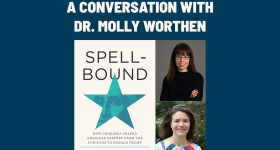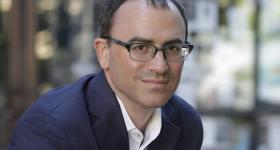A Conversation with Dr. Molly Worthen
Dr. Molly Worthen will discuss her new book "Spellbound". Moderated by Eleanor Barkhorn.


The Loeb Institute is housed within GW's Columbian College of Arts and Sciences through the philanthropy of Ambassador John L. Loeb, Jr. and the George Washington Institute for Religious Freedom.
Ambassador Loeb founded the New York City-based George Washington Institute for Religious Freedom in 2009. The original institute offered educational programs based in New York and Newport, Rhode Island, and partnered with civic organizations to reach tens of thousands of students. Following a 2016 donation of $2.5 million by the John L. Loeb Jr. Foundation and the Institute for Religious Freedom, those educational programs were transferred over to GW.
Learn more about the $2.5 million gift that established the Loeb Institute at GW.
"It is now no more that toleration is spoken of as if it were the indulgence of one class of people that another enjoyed the exercise of their inherent natural rights, for, happily, the Government of the United States, which gives to bigotry no sanction, to persecution no assistance, requires only that they who live under its protection should demean themselves as good citizens in giving it on all occasions their effectual support."
Read George Washington’s Letter to the Hebrew Congregation of Newport, Rhode Island.

A Conversation with Dr. Molly Worthen
Dr. Molly Worthen will discuss her new book "Spellbound". Moderated by Eleanor Barkhorn.

Daniel Schwartz named Interim Executive Director
Daniel Schwartz, Professor of History, has been named the new Interim Executive Director of the Loeb Institute.
What did George Washington and other Founders believe about religion? TO BIGOTRY NO SANCTION is a short film that addresses this and other questions.
